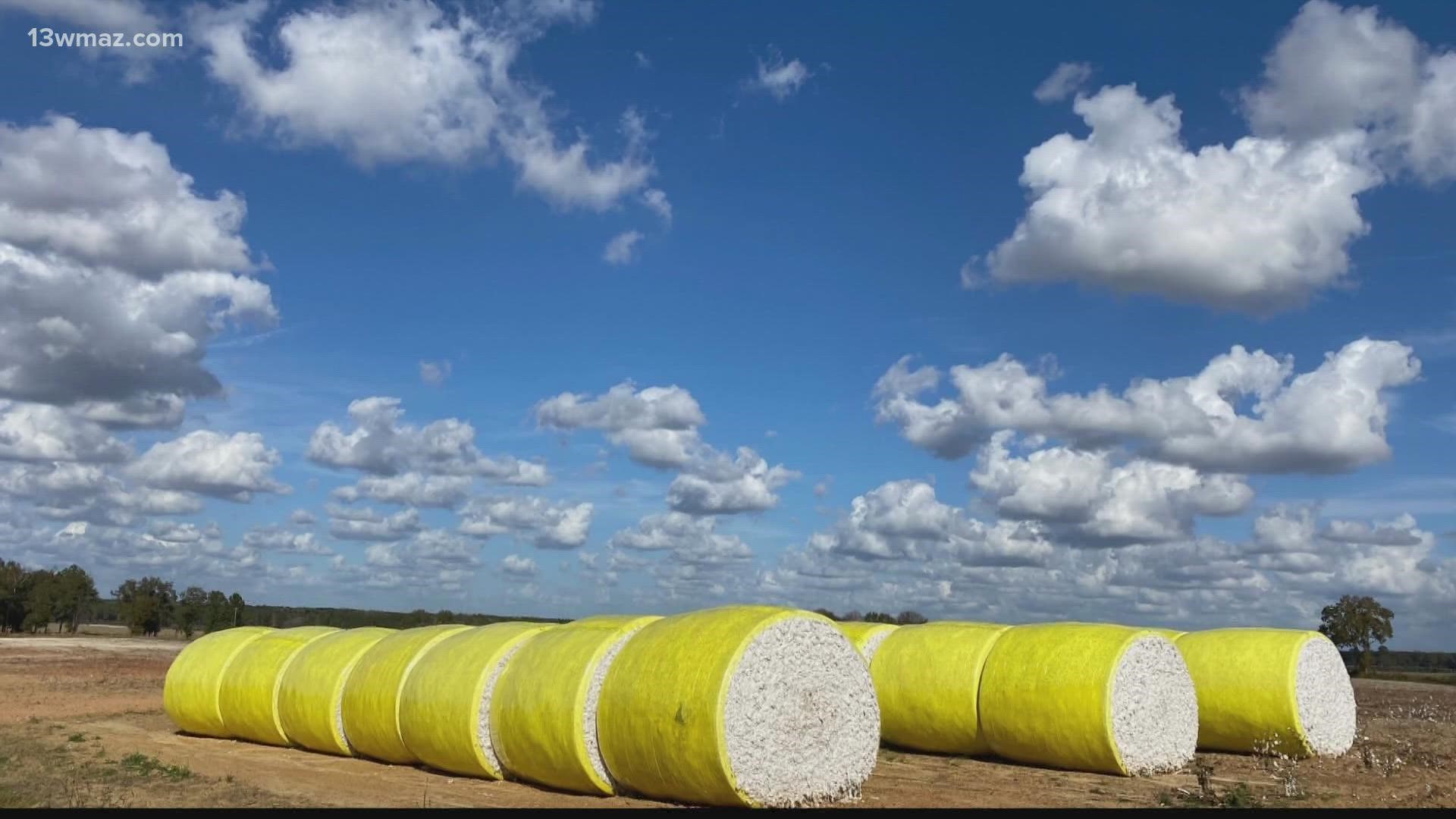MACON COUNTY, Ga. — What's happening across the globe is causing frustrations for farmers in Central Georgia. The University of Georgia put out a report saying Russia and China won't be exporting as much nitrogen this year, keeping it for farmers in their own countries.
That move is causing Matt Oliver in Macon County to look around and get creative.
"Fertilizer has over doubled. It's put a big crunch on us this year," he said.
Oliver works 3,000 acres of land on his farm Ideal Ag in Macon County.
"We grow wheat, corn, soybeans, and cotton," he said.
Farmers typically work on thin profit margins, so when a key part of the puzzle came with sticker shock, Oliver took advantage of his location.
"I think we're #1 in the state for poultry production and when you got lemons, you make lemonade," he chuckled.
Or when you have chicken farmers around you, buy their waste, but even that isn't an easy row to hoe.
"It's been hard to find a lot... it's going to South Georgia to farmers down there, so it's definitely getting moved out of the area," he surmised.
The phrase 'supply chain problems' in relation to COVID is now part of our language, but Oliver says he thinks all of this is a sign and it fueled his decision to think about farming differently.
On many of his fields, he's going with row crops and less work with the tractor.
"We hide the surface of the soil and the rain doesn't even hit it as hard, so we don't have as much erosion and in turn we save a lot of our fertilizer," he explained. "We've decreased our passes through the field and increased our efficiency."
Using row crops is not a new idea, but Oliver says they're going to go at the concept harder, leaving the soil alone and letting the earth regenerate what it needs naturally.
He's banking on it to fend off needing supplies from overseas and depending on Georgia dirt to deliver a harvest of high cotton.
Agriculture economist Amanda Smith with the University of Georgia says the state will keep a close watch on peanut production this year.
Peanuts do not need nitrogen for production, but too much nut production could also cause problems in pricing down the road.

